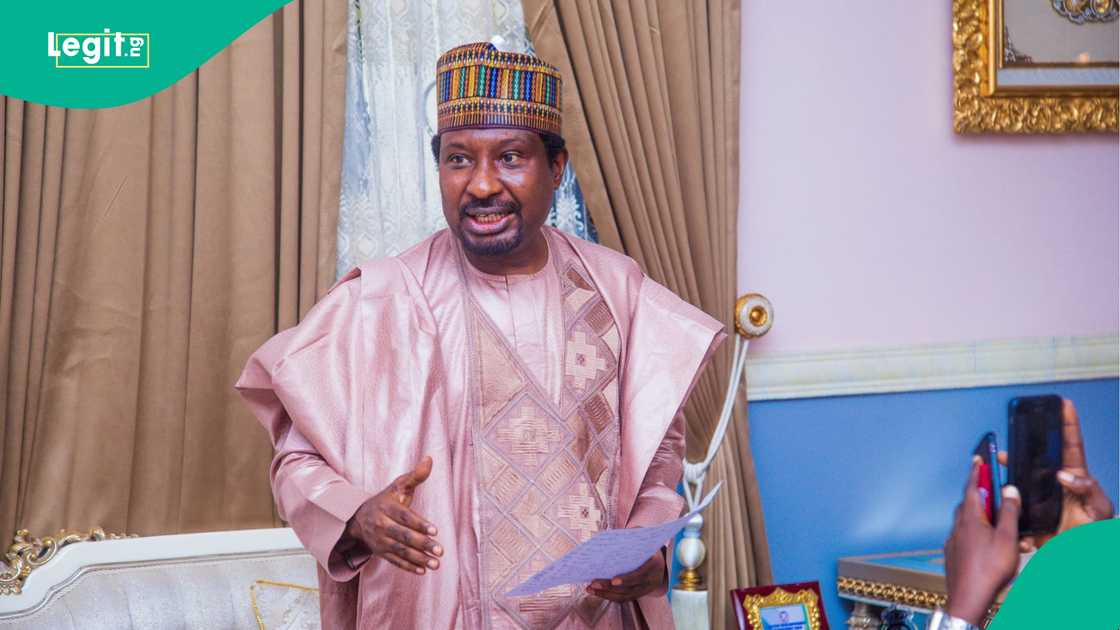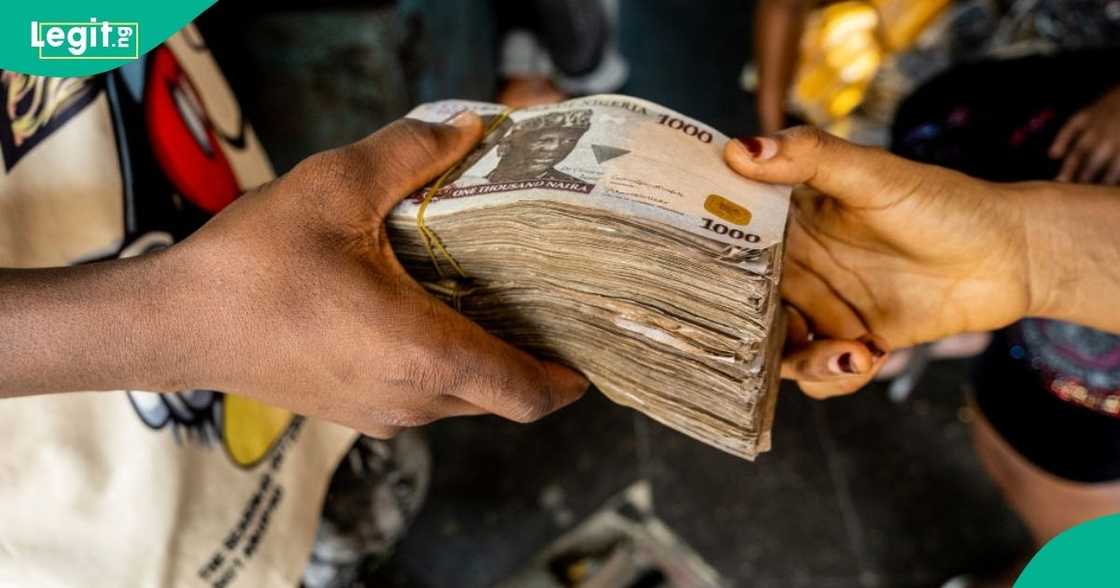Nigeria’s Deputy President of the Senate, Barau Jibrin, has unveiled a fresh round of financial empowerment aimed at assisting at least 10,000 low-income individuals residing in Kano State. As announced by his media office, this initiative will distribute N20,000 each to selected beneficiaries across all 44 local government areas (LGAs) of the state. The process will officially kick off with the distribution of application forms on October 9, 2025, marking a significant stride in local poverty alleviation efforts.
Empowerment programmes for Kano state residents
The support scheme is being driven by the Barau I. Jibrin Foundation (BIJF), a charitable body established to uplift society’s most vulnerable and encourage grassroots progress. According to the foundation, the programme is thoughtfully structured to ensure broad participation, especially in areas with acute need.
More specifically, 6,500 individuals from the Kano North Senatorial District will benefit from this financial intervention, with 500 people chosen from each of the 13 local government areas. Additionally, every local government area within Kano Central and Kano South Senatorial Districts will see 112 residents each selected to receive the cash grants, offering relief well beyond a single constituency.
Representatives from the BIJF emphasised that the primary aim is to cushion the pervasive economic challenges affecting residents, strengthen household resilience, and improve daily livelihoods. In a statement, the foundation asserted its broader commitment: “These measures are only part of our overall response to current economic hardship facing many in Kano State,” the statement read.
Past interventions by the BIJF reportedly included the award of postgraduate scholarships overseas, direct healthcare support, and investment in agricultural initiatives, all of which, according to Daily Trust reporting, have positively impacted the region’s socio-economic landscape.
Part of the statement reads:
“A total of 6,500 persons would be selected from the Kano North Senatorial District, with each of the 13 LGAs set to produce 500 beneficiaries.
“One hundred twelve individuals (112) will be selected from each local government area in Kano Central and South Senatorial Districts.
“This is in addition to the numerous interventions of the Deputy President of the Senate in the areas of education, healthcare, agriculture, security and transportation, among others. The Deputy President of the Senate remains committed to empowering the people.”

Source: Twitter
A core focus of the current programme is empowering two key demographic groups: women and youth. According to the Deputy Senate President, no sustainable community development can occur without enabling these populations with opportunities and direct support. In a region grappling with youth unemployment and deep-rooted socio-economic imbalances, such targeted initiatives are essential, analysts based in Kano noted.
Local small-scale traders and those running micro-businesses—especially women—will stand to gain significantly. “By directly empowering women and youth, the programme can help reduce dependency and encourage self-sufficiency in our communities,” said Fatima Bello, a women’s rights advocate based in Kano.
He said.
‘” Empowering women and youth is a central focus of His Excellency’s initiatives, which aim to foster development and growth in the North and the country at large.”
According to a report by ThisDay, the intervention is designed not only to address urgent financial needs but also to expand economic opportunity within Kano State. The cash grants are expected to boost micro-enterprises, support small traders facing rising costs, and offer immediate relief for daily household expenses. This is particularly relevant as inflation and cost-of-living pressures intensify across Nigeria and West Africa.
FG invites Nigerians to apply for N50,000
In related national news, Doris Uzoka-Anite, Nigeria’s Minister of Industry, Trade, and Investment, has announced the ongoing disbursement of N150 billion in loans to the country’s micro, small, and medium enterprises (MSMEs). The federal initiative, driven by the Presidential Conditional Grant Scheme, continues to expand as part of a coordinated response to stimulate local economies and backstop struggling traders.
Minister Uzoka-Anite confirmed that more Nigerian entrepreneurs and applicants still have the opportunity to apply for this scheme, and urged eligible citizens to participate while the window remains open. Importantly, she revealed that around 60% of the targeted one million beneficiaries across Nigeria’s 774 LGAs have already received their grants—with no repayment obligations for recipients—underscoring the government’s intent to provide lasting support and help micro-businesses recover post-pandemic and amid inflation.
Experts point out that access to such direct financial relief can create ripple effects across communities: beneficiaries are more likely to invest in business expansion, increase their purchasing power, and generate modest employment opportunities at the grassroots. “At this scale, the combined efforts of federal and local empowerment schemes are crucial to driving recovery from the twin shocks of pandemic and commodity price volatility,” explained Dr. Adebayo Arewa, an economist and SME specialist in Abuja.
Despite the optimism, some observers cautioned about the challenges of equitable selection and transparency. In interviews with Kano and Lagos-based civil society groups, concerns were raised about possible favouritism and the need for independent monitoring to ensure funds reach original intended beneficiaries. “Selection processes must be fair and open—otherwise, these good intentions risk being undermined by public distrust,” noted Amina Sani, a governance watchdog organiser.
Real-life reactions from ordinary citizens also underline the importance of these initiatives. Musa Lawal, a tailoring apprentice from Gwale, expressed hope that the direct cash grant could help him purchase much-needed tools: “If I’m selected, it would mean I can buy a new sewing machine. That alone could change the fortunes of my family.” Similarly, market seller Salisu Ibrahim from Wudil added, “For small traders like us, even a little support makes a big difference in our daily survival.”
As more Nigerians and West Africans navigate uncertain economic times, such efforts—whether by government or local philanthropists—are likely to remain vital tools for poverty alleviation, community resilience, and long-term socio-economic growth.
Questions remain, however, about the sustainability of cash disbursements compared to job creation and skills development interventions. Development experts have pointed to the need for institutional reforms, multi-year follow-up, and robust data tracking to ensure these schemes yield lasting impacts.
Globally, targeted cash transfer programmes have grown in popularity as short-term poverty-fighting strategies—in Ghana, Kenya, and South Africa, variants of such schemes have been credited with helping households cope with shocks. Still, local adaptation is key to success, argued Professor Joyce Obeng, a social policy researcher: “Careful targeting and regular monitoring must go hand-in-hand to avoid leakages and maximise gains for those who need help most.”
Ultimately, the N20,000 cash initiative—when combined with broader federal lending and grant schemes—offers a timely opportunity to uplift countless Kano State families, drive local commerce, and provide a social safety net for millions of Nigerians working to build a better future. The coming months will reveal its effectiveness and provide lessons for similar efforts across West Africa and beyond.
Do you think direct cash empowerment like this is the most effective way to support struggling households, or should more focus go into job creation and education? Share your thoughts below, and stay connected for further updates on local empowerment initiatives!
For all general support or news tips, reach out at support@nowahalazone.com.
Stay connected and join the conversation! Follow us for more news and community updates on
Facebook,
X (Twitter), and
Instagram.
Share your views below, drop a comment, or tag us with your opinion on social media. Your perspective matters!










